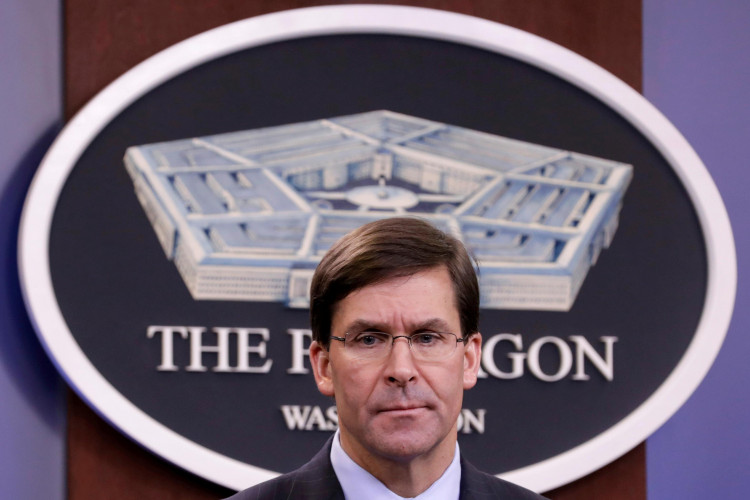The partial ceasefire reached February 14 between the United States and its coalition allies with the Taliban in Afghanistan is key to allow the United States Armed Forces to later focus more of its energies on winning its great power rivalry against China.
The latest in a long line of truce agreement the U.S. has reached with the Taliban first calls for "a reduction in violence" in Afghanistan. The Trump administration then wants negotiations to begin in March between Afghans on opposing sides of the insurgency. It claims the truce is a breakthrough after more than 18 years of war.
A ranking White House official said the truce will take effect "very soon" and might lead to the withdrawal of American troops from Afghanistan. He said the agreement calls for a seven-day "reduction in violence" to be followed by the start of all-Afghan peace talks within 10 days.
President Donald Trump, however, made the same claim in September 2019 after eight rounds of talks with the Taliban. Trump falsely claimed an agreement had been reached with the Taliban, and that a final deal was on his desk awaiting his signature.
That same month, however, Trump canceled peace talks with the Taliban after an attack that killed an American soldier and 11 other people. Despite Trump's unilateral move, the Taliban said its "doors are open" should Trump want to resume peace talks in the future.
The last of the great Islamic insurgencies that have shaped the U.S. military for almost two decades, the war in Afghanistan is also preventing the U.S. from fully pivoting its resources towards dealing with both China and Russia. Of these two powerful foes, the U.S. considers China the most dangerous.
Defense secretary Mark Esper reaffirmed the U.S. now "in an era of great power competition," against China and Russia during the two days Munich Security Conference that ended Sunday. This stark reality means the U.S. must "focus more on high-intensity warfare going forward."
He revealed the U.S. ranks "China number one, Russia number two" among its strategic competitors.
He pointed out China continues to grow in military strength, economic power and commercial activity. Esper noted China is getting this done "in many ways illicitly or using the international rules-based order against us to continue this growth, to acquire this technology and to do the things that undermine our nations."
This great power competition extends to business competition. Esper said the Department of Defense or the Pentagon is investing hundreds of millions of dollars into competing against China in 5G. This huge sum is going into developing an alternative to the version of the 5G technology developed by Huawei Technology Co. Ltd.
Esper admitted the U.S. military is conducting "test (5G) beds at several of its bases." The U.S. military is also inviting commercial vendors to participate in this program and can "put aside unnecessary regulation that inhibits the testing."
Esper wants the U.S. to move as "quickly as we can" to develop its own 5G technology. If it doesn't, "China's domination of this market will continue to grow."
He also said it was the fumbled response of China's political leadership that allowed the Covid-19 outbreak to become worse than it should have otherwise been. Esper said China's communist system of government thrives on a "lack of transparency." China's habit of "suppressing the truth" placed a heavy hand on local authorities, and this "actually enabled the virus to spread."
He believes a more "open" political system such as democracy that allows China to willingly "admit the shortcomings" might have "tamped down this virus arguably much more quickly."






